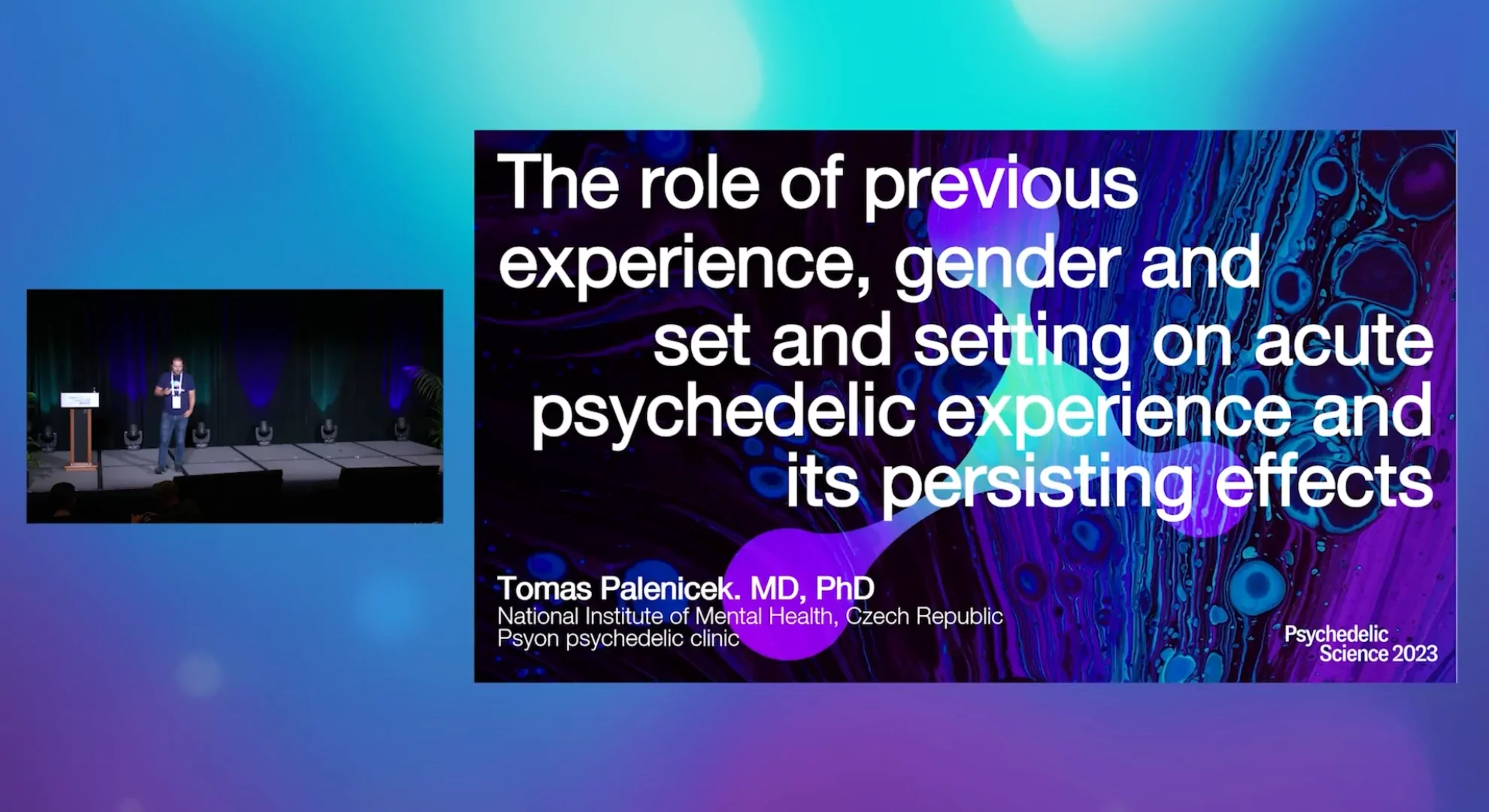
The role of previous experience, gender and set and setting on acute psychedelic experience and its persisting effects
The role of psychedelic experiences on long-term outcomes in mood and other aspects of wellbeing has been explored in a number of recent studies. Most studies describe an association between oceanic boundlessness, peak and mystical experiences with positive long-term outcomes. On the other hand, negative/anxious or challenging experiences might be associated with negative outcome or non-response. Set and setting are obviously one of the key aspects that are thought to play a role in determining the phenomenology of each experience and as such may also be associated with long-term outcome. Together with other aspects such as gender, education and previous drug experience, it is a set of variables that can theoretically influence both acute and long- term effects. In my talk, I will present data from a double-blind, placebo-controlled clinical trial with psilocybin in healthy volunteers who underwent two sessions with an intermediate dose of psilocybin under two different conditions, first in the EEG lab and second in the fMRI lab, with 1.5 years between each psilocybin session. The sample was balanced in terms of gender, drug naïve vs experienced and also health professional vs non-professional, and these variables were assessed in relation to acute phenomenology described by the Altered State of Consciousness Scale (ASC). Long- term outcome was assessed using the Persisting Effects Scale (PEQ) and again associations with ASCs phenomenology were evaluated. Finally, a scientist's personal experience of a pilot EEG study of ayahuasca in indigenous rituals in the Peruvian Amazon will broaden the view of the traditional set and setting.
Share: The role of previous experience, gender and set and setting on acute psychedelic experience and its persisting effects
Facebook
Twitter
LinkedIn
Email




